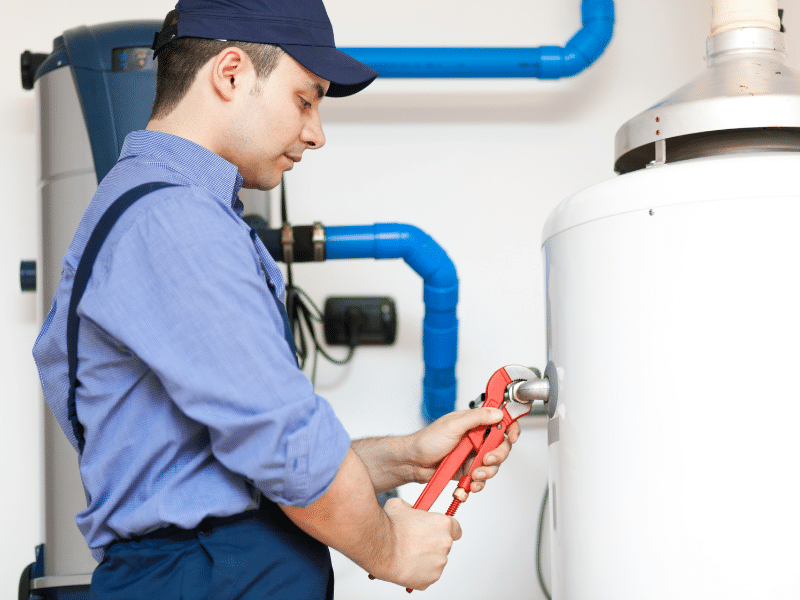Causes of rust on water heater
When metal comes in contact with water, there is always a risk of rusting. Water heaters are one such appliance where water meets metal so they are at risk of corroding. However, they are designed to be rust-resistant for many years. With proper maintenance, you can prevent rusting and other problems, and keep your water heater running efficiently. If you see rust anywhere on your water heater or in the water coming from it, there could be various possible reasons. Before you talk about them, let’s try to understand how your water heater is equipped to fight rusting:
Corrosion in water heaters
Corrosion occurs when water and metal come in contact with each other in the presence of oxygen. Your water heater has built-in defenses against rusting.
Glass lining
The water tank is glass-lined, which prevents water from coming in contact with the metal.
Pressure valve
It also has a pressure relief valve that acts as an air cushion against the build-up of water pressure and prevents air from coming into contact with water.
Sacrificial anode rod
It is a long metal rod made of aluminum or magnesium. It extends through the water tank’s interior and attracts particles of limestone, iron, and other minerals present in the water through an electrochemical process. So, it sacrifices itself to save the water heater. When the sacrificial anode rod rusts completely, it won’t be able to protect the water heater anymore.
What causes rust in/on the water heater?
Rust outside the water heater
Rust outside the water heater tank could mean that the metal has begun to corrode. The most common reason for this is that the sacrificial anode rod has failed. With time, it is normal for the anode rod to corrode, and when it happens, the metal of the tank is exposed and begins to corrode. Corrosion can also occur if the water has high mineral content and you don’t flush your tank regularly. Once the metal begins to corrode, the tank will become more prone to leaks.
Rust in the hot water
When you notice rusty discoloration of your hot water, it does not necessarily mean that the water heater tank is the source. While there is a high probability that the tank has corroded, the discoloration could also be due to sediment buildup in the tank. Thankfully, this problem can be easily addressed by flushing the tank. In case the discoloration is rust, it spells bad news.
Rust on the top of the tank
Rust on the top of the tank could be due to a leaking connection that allows water to drip into the tank. Your plumber will be able to fix the leak and also take care of the rust that has already occurred. However, if the rust has gone too far already, there is nothing much the technician will be able to do.
Rust on the water heater bottom
If your water heater is rusting from the bottom, it could be due to a leaky tank. It may also occur if the basement is wet. Even a tiny crack in the tank can cause leakage and over time, this can lead to corrosion at the bottom. If the basement where the heater is installed is wet, it can cause rusting at the bottom. In this case, you might have to replace the water heater.
Don’t let rust on water heater components become a costly issue. Regular maintenance can prevent rust on water heater parts and prolong its lifespan. Don’t wait until rust on water heater surfaces causes irreversible damage; take proactive measures today.
Do you see signs of rusting on your water heater? Have it checked by a professional before it gets too late. If checked and fixed in time, you may be able to save the water heater.





